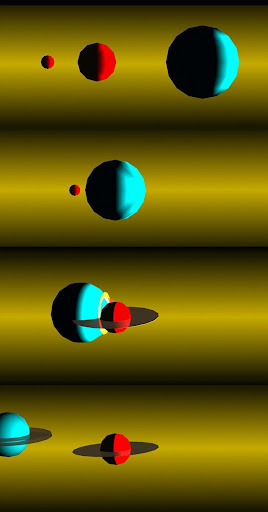It was all created by god!
I hear your brains all screeching to a halt as you switch to attack mode, just relax, I don't believe that.

Anyway, I'm new here, by way of introduction I hold a doctorate in psychology, so I am not an astrophysicist, however, I have been alarmed by this field of late. Humanity seems to have made science the new infallible religion, theory has become the new scripture, and sadly, much theory in the field of astrophysics holds just as little tangible evidence as religion. A model, constructed under nominal conditions can in no way prove anything, it merely represents a possibility, so you shouldn't have attacked the original poster for being skeptical, this behavior by the scientific community lately has saddened me. We in the psychology community don't accept Freud or Jung as writing absolute truths, and without absolute proof that a mars sized body collided with Earth, I don't feel it was justified to attack the OP. If we fail to keep our minds open to challenging theories that can't be absolutely proven, we fail both science and society, and prepare ourselves for another dark age. I'm sorry, I just felt like I had to say that after seeing the mockery and near fanatical assault on the original poster. Keep reaching for the stars, but with open minds, science holds few absolute truths.




